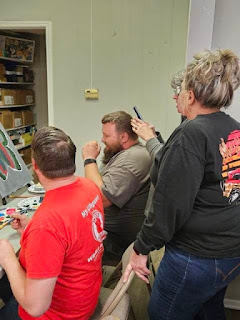Noah Webster was born in 1758, in Hartford Connecticut. His family had a rich pedigree in American history. Noah excelled at learning and entered Yale University at the age of 15. His father mortgaged their home to send him to college. While learning at Yale Noah joined the Connecticut militia. Upon graduation, Noah took the Bar examination and became a lawyer but despised practicing law. He quickly spiraled into a deep depression until he started working in the newspaper industry. He was eventually asked by Alexander Hamilton to be the editor of the Pro Revolutionary newspaper called the Federalist. Webster was an adamant supporter of the revolution. Over time he became an advocate for public education. He became a teacher and eventually printed the Blue Backed Speller which would be the best-selling book used by teachers (selling over 100 million copies). He also served in the Connecticut House of Representatives along with other ventures into printing but his Magnum Opus was the American Dictionary in the English Language. He started the project in 1802 and it took him 26 years to complete. During this time Webster learned over 28 languages. His dictionary had over 70,000 words, 12,000 of which had never been published in a dictionary before. His dictionary was not the first of its kind but was the most complete and scholarly work. Tragically it only sold 2500 copies and he needed to mortgage his home to produce a second edition. Webster struggled financially most of his life and by the end of his life, he was destitute.
Webster spent his entire life studying the etymology of words, dedicating himself to understanding what they mean. Webster understood the value and power of words, and the Bible speaks about the power of words too. The Bible tells us in Proverbs 18:21 "Death and life are in the power of the tongue, and those who love it will eat its fruits." You've heard the proverbial phrase "Sticks and stones may break my bones but words will never hurt me." That statement is rife with errors on so many different levels. Words do hurt, sometimes more than a physical wound, and take longer to heal. Words that hurt are often spoken by people that we love and care about. The words we speak can either be a construction crew building people up, or a destruction crew, destroying other people. Words have the power of life and death. Examine the words you have spoken so far today, are they construction and life-giving? Or are they destroying and bringing death? Today, purposefully speak words of life to EVERYONE around you, regardless of who they are.















